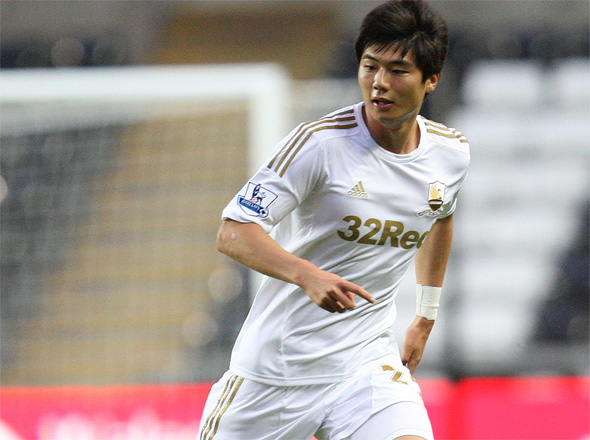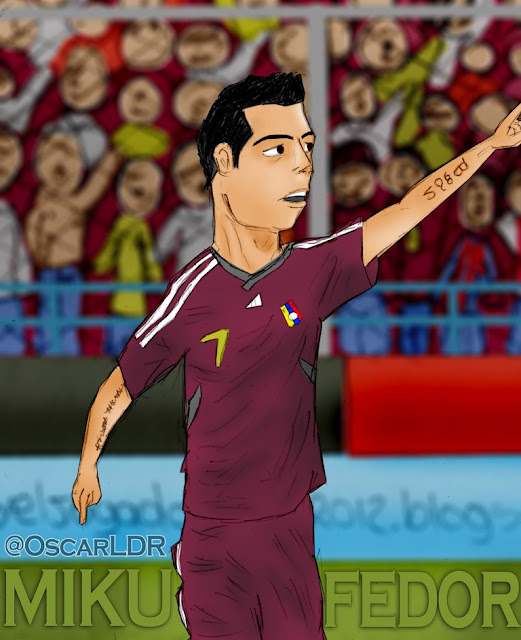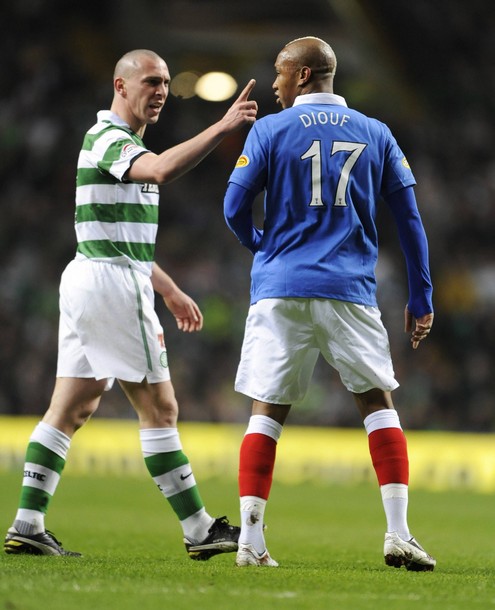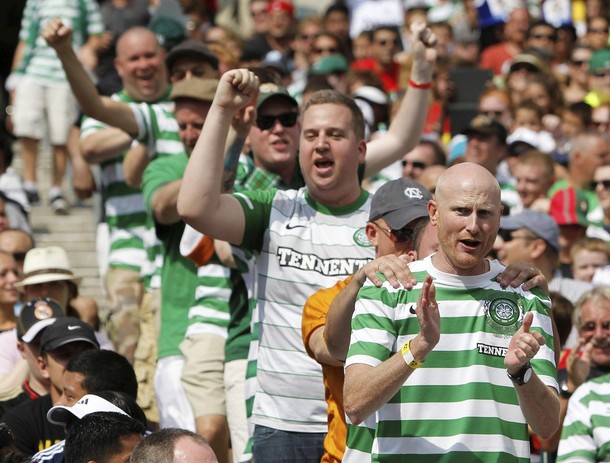Firstly, there was the ritual of standing at the corner outside the pub whilst his Father drank inside it. Armed with the obligatory can of coke and packet of cheese and onion crisps there was none the less a pecking order amongst the boys waiting there. The younger primary school age kids like him stood like wallflowers against the pub wall whilst the bigger boys of secondary school age got to stand at or sit on the metal fence which gave them the ideal opportunity to ‘wave’ to the Rangers’ buses travelling down the Govan Road. Hard to believe in those days that police would actually allow Glasgow’s big two to play on the same day and that they could even police it adequately and without incident.
This ritual did not always go down well. On one occasion his Mother was on a bus travelling home from work with a friend and commented from a distance that one wee boy outside the pub looked like her Stephen. As the bus got nearer she commented that he even had the same jacket as her Stephen and as the bus turned the corner she realised with shock indignation that the boy actually was her Stephen and there he was standing outside a pub like an urchin. All was not well in the household that night.
The supporters’ bus then arrived and parked outside the pub. The boys were too respectful to go on without their Fathers so they continued their wait. The bus was a Western Scottish, red double decker, with the open entrance at the back with the metal pole to grip when entering and exiting the vehicle. This was the London route master type of bus from ‘On the Buses’ fame on television and would naturally lead to a round of Reg Varney jokes at the driver’s expense. As there was no door on the bus this meant that there was great air conditioning in the summer but it could also be an unpleasant experience in the bitter cold of winter.
At two o’clock his Father left the pub, collected his son and they took their places on the bus, members seated down the stairs with non members on the top deck. The committee then would sit on the stairs at the entrance of the bus counting the takings and keep a vigil from the metal pole.
This was a well run bus. No alcohol, no swearing, no Irish rebel songs and no Irish flags. Boys and pensioners were allowed free travel, this in order to encourage the young and also to reward the elderly for their support through the years. The Soldier’s Song was the Irish national anthem to be greatly respected and not to be sung by drunken supporters at football matches and the Irish Tricolour was to be flown from the flag pole at Paradise and be paid its due respects and not to be waved as a tawdry banner on the Parkhead terraces.
Then there was the singing. The men would have a wee drink in them and this was their day out, a time to be enjoyed. He liked the singing; the songs were quaint and inoffensive.
Who do you think you are kidding Willie Waddell
When you say the Celts are done
We are the boys who will stop you’re little game
We are the boys who will fly the flag again
So who do you think you are kidding Willie Waddell
When you say the Celts are done
——————————————————-
We’re on the top of the league
Looking down on the Rangers
And the only explanation I can find
Is the team that we’ve got is the best team of the lot
And they’ve put us on the top of the league
——————————————————-
They’ll be jumping oot their windaes when we win…
——————————————————-
Said Philip to Lizzy I’ll tell you my dear
And I’ve known this secret for many a year
To beat Glasgow Celtic you’ll have to deport
The fighting mad Irish who give them support
——————————————————-
Charlie, Charlie Tully, King of Paradise…..
——————————————————–
Harry Hood, Harry Hood running through the glen
Harry Hood, Harry Hood with his Fenian men
Feared by the bad
Loved by the good
Harry Hood, Harry Hood, Harry Hood
Back in the good old days before squad numbers, teams lined up in numbers one to eleven with two substitutes. The committee men would then sell their ‘sweep’, in which for ten pence you picked a marker from the inside of a wee boy’s Celtic tammy. If you pulled out ‘Celtic 7’ it basically meant that if Jimmy Johnstone scored the first goal then you were entitled to half of the money, to be collected on the return journey. This was ideal for raising club funds and added a wee bit of excitement going to the game. There was also a marker noted ‘referee’ and in the unlikely event of a goal less draw this one would win the money.
He also loved the tales the men told. Some of them spoke of trips to Lisbon in 1967 and others of the legendary ‘7-1’ and Coronation Cup finals. They described players like Bobby Evans, Charlie Tully and Bobby Collins whilst some of the older men could actually still remember the incredible feats of John Thomson and James McGrory. On the journey there it was often a time for argument and debate:
‘Ah’m telling ye Dunky MacKay was a better back than Jim Craig’.
‘If McBride had played in Lisbon we’d have beat Inter 5-1, nae sweat.’
‘Stein should never have sellt big Gemmell. There’s no another left back noo at Parkheid.’
‘Henderson ? He couldnae lace Jinky’s boots. The wee man hit a level Henderson could never reach.’
The men on the bus had a superiority complex towards Rangers, on and off the park. They were used to watching artisans such as Murdoch, Auld, Connelly and the young Dalglish, the unique individual brilliance of Johnstone, the exciting over lapping full backs in Gemmell, Hay and McGrain and a wonderful assortment of goal scoring strikers like Deans, Macari, Hood and Lennox. Celtic preferred the rapier to the broad sword and played with a verve and excitement that few others teams on the continent could match. In comparison Rangers’ tactics were seen as dated and clumsy with them still likely to play with lumbering centre forwards who in the main were expected to chase hopeful high balls and crosses. Their policies off the park where also ridiculed and it was often noted that they wouldn’t sign the greatest player of them all, Pele, presumably because he was not good enough for them. Celtic were seen as superior in every respect.
Once arrived at the ground his Father would often try and gain entry into Celtic’s brand new shiny cantilever main stand. It was normally okay to get in but on occasions a steward would come out with a ‘stand full’ sign which would then involve hundreds of people rushing madly across the car park to the turnstiles at the Celtic end of the ground with the roars of the crowd frustratingly informing them that the game had already started. He would be roughly lifted over the turnstile as lots of wee boys stood nearby shouting at adult fans, ‘Haw big man, any chance of a lift in ?’
Winter games were best. Upon coming out of the tunnel underneath the stand and seeing the pitch for the first time it looked a glorious shade of luscious green as the huge floodlights, said to be the biggest and best in the UK, beamed down on it. It made for a magnificent sight and when the team took the field to a huge roar he now realised that football was played in glorious Technicolor. The black and white newspaper pictures and monochrome television coverage did not do justice to those Celtic strips. The classic, smart green and white crew necked hooped shirts with the white shorts with green numbers on them and the white socks. They dazzled like diamonds underneath those bright floodlights. There was a wonderful contrast too with the colours of the opposition strips, the claret and amber of Motherwell, Dundee United’s tangerine and black and Partick’s traditional red, yellow and black.
A haze of smoke rose slowly from the stand into the night sky caused by a human lumb of smokers and men drank openly from beer cans and whiskey bottles in those far off days before legislation banned alcohol at football grounds.
Before the game a hush came over the crowd as the announcer read out the teams. There was a perfect symmetry to the way he read them out.
Williams, McGrain and Brogan
Murdoch, McNeill and Connelly
Johnstone, Dalglish and Deans
Callaghan and Lennox
It reminded him of the time that he read of the boy who went to the seminary in Spain to become a priest. He was asked if he knew any poetry and he replied by Rhyming off the Celtic team in order who had beaten Rangers 7-1 in 1957. That Celtic team was poetry to his ears all right, absolute poetry.
Then there was the noise, the instinctive roar that went up after a shot on goal or a piece of great skill. He loved how a song was started in one area of the ground and then quickly swept round the other areas as the other fans joined in unison. There was a nervousness in him that perhaps this was the one day that Celtic would stumble to a rare home defeat that would spoil the occasion. But he need not have worried, his heroes came through for him in the end.
That Celtic win was the order of the day but regardless of the result he was pleased just be there. On the way home there would be more singing on the bus with committee men shouting to those in the upper deck to stop stamping their feet so loudly. The wee boy’s Celtic tammy was again utilised for the traditional whip round for the driver and before he knew it they were back in Govan.
On the walk back his Father would buy the ‘pink Times’ or the ‘green Citizen’ to scrutinise that day’s football results and when they got home his Mother would have a warm welcome and the dinner ready. With a bit of luck he would make it back in time to see Jon Pertwee in Doctor Who. And the excitement would not wear off for hours. Maybe the highlights would even be shown on Sportreel later that night and he would be allowed to stay up late to watch it.
But most of all he hoped. He hoped that his Father would take him again. Soon.





